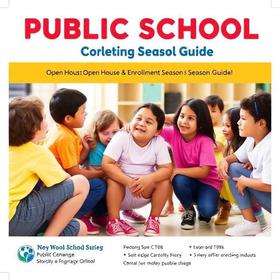Top Rankings
Beehive Science & Technology Academy School District ranks among the top 20% of public school district in Utah for:
Category
Attribute
Overall Rank
Highest overall rank (Top 20%)
Math Proficiency
Highest math proficiency (Top 10%)
Reading/Language Arts Proficiency
Highest reading/language arts proficiency (Top 20%)
Science Proficiency
Highest science proficiency (Top 5%)
Diversity
Most diverse schools (Top 1%)
For the 2025-26 school year, there are 2 public charter schools serving 762 students in Beehive Science & Technology Academy School District. This district's average charter testing ranking is 9/10, which is in the top 20% of public charter schools in Utah.
Public Charter Schools in Beehive Science & Technology Academy School District have an average math proficiency score of 59% (versus the Utah public charter school average of 38%), and reading proficiency score of 52% (versus the 39% statewide average).
Minority enrollment is 43% of the student body (majority Asian and Hispanic), which is more than the Utah public charter school average of 36% (majority Hispanic).
Overview
This School District
This State (UT)
# Schools
2 Schools
143 Schools
# Students
762 Students
79,969 Students
# Teachers
43 Teachers
4,131 Teachers
Student-Teacher Ratio
18:1
18:1
Student By Grade
District Rank
Beehive Science & Technology Academy School District, which is ranked within the top 20% of all 153 school districts in Utah (based off of combined math and reading proficiency testing data) for the 2022-2023 school year.
The school district's graduation rate of 90% has increased from 80% over five school years.
Overall District Rank
#18 out of 154 school districts
(Top 20%)
(Top 20%)
Math Test Scores (% Proficient)
59%
40%
Reading/Language Arts Test Scores (% Proficient)
(20-21)50-54%
43%
Science Test Scores (% Proficient)
(20-21)62%
45%
Graduation Rate
(21-22)≥90%
88%
Students by Ethnicity:
Diversity Score
0.62
0.53
% American Indian
n/a
n/a
% Asian
18%
3%
% Hispanic
15%
25%
% Black
3%
2%
% White
57%
64%
% Hawaiian
2%
2%
% Two or more races
5%
4%
All Ethnic Groups
District Revenue and Spending
The revenue/student of $4,510 in this school district is less than the state median of $10,732. The school district revenue/student has declined by 59% over four school years.
The school district's spending/student of $3,861 is less than the state median of $10,829. The school district spending/student has declined by 59% over four school years.
Total Revenue
$3 MM
$7,309 MM
Spending
$3 MM
$7,375 MM
Revenue / Student
$4,510
$10,732
Spending / Student
$3,861
$10,829
Best Beehive Science & Technology Academy School District Public Charter Schools (2025-26)
School
(Math and Reading Proficiency)
(Math and Reading Proficiency)
Location
Quick Facts
Rank: #11.
Beehive Science & Technology Academy
Magnet School
Charter School
Charter School
(Math: 61% | Reading: 50-54%)
Rank:
Rank:
9/
Top 20%10
2165 East 9400 South
Sandy, UT 84093
(801) 576-0070
Sandy, UT 84093
(801) 576-0070
Gr: 6-12 | 402 students Student-teacher ratio: 19:1 Minority enrollment: 44%
Rank: n/an/a
Beehive Science & Technology Academy Elementary School
Charter School
2165 East 9400 South
Sandy, UT 84093
(801) 576-0070
Sandy, UT 84093
(801) 576-0070
Gr: K-6 | 360 students Student-teacher ratio: 16:1 Minority enrollment: 42%
Recent Articles

Charter Schools vs Public Schools 2025: Key Differences & Trends
Explore updated 2025 insights comparing charter schools vs public schools, enrollment, academic outcomes, funding, and real-world examples for families and educators.

Are Public Schools Ready for the 21st Century? 2025 Update
Explore 2025 insights on whether public schools are ready for the 21st century, covering performance, technology, equity, funding, and future-ready learning.

Public School Open House & Enrollment Season Guide
A parent-focused guide to the public school open house and enrollment season, with expert questions, timelines, and decision tips.





